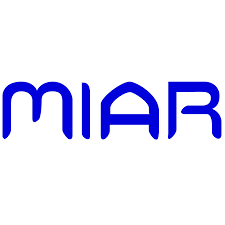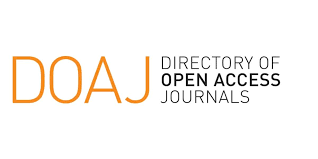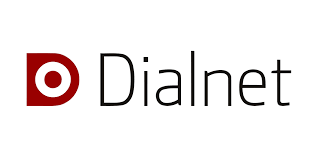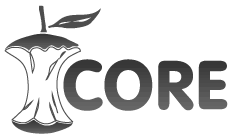How to raise relevant scientific problems by identifying research gaps
DOI:
https://doi.org/10.36881/ma.v1i1.644Keywords:
problema científico, relevancia, brecha de investigación, planteamiento del problema, preguntas de investigación cuantitativa, preguntas de investigación cualitativaAbstract
The objective of this review article was to analyze the process of posing relevant scientific problems based on the identification of research gaps, in order to satisfy the need of thesis students and young researchers, who require guidance to carry out research whose contribution to knowledge is significant. The methodology consisted of the search and analysis of documents that addressed the issues of scientific relevance, research gaps, and the approach to problems in the different research approaches: quantitative, qualitative, and mixed. The search results reflect that, specifically, the literature on the concept of research gaps is scarce, especially in Spanish, hence the contribution of this work to the subject of study. It is concluded that the effective identification of research gaps could lead to the posing of relevant scientific problems.
Downloads
References
American Psychological Association (APA). (2022a). Qualitative Research Design (JARS–Qual). https://apastyle.apa.org/jars/qualitative
American Psychological Association (APA). (2022b). Quantitative Research Design (JARS–Quant). https://apastyle.apa.org/jars/quantitative
Amezcua, M., Herrera Justicia, S., y Orkaizagirre Gómara, A. (2018). Publicación científica: causas de rechazo de manuscritos en función de la pertinencia. Index de Enfermería, 27(3), 175-179. https://bit.ly/3Gof2uL
Arias, F. (2016). El proyecto de investigación. Introducción a la metodología científica, 7ª ed. Episteme.
Ballesteros-Ricaurte, J. A., Avendaño-Fernández, E., González-Amarillo, A. M., y Granados-Comba, A. (2021). Mapeo científico en la búsqueda de información. Caso de estudio: enfermedades infecciosas en bovinos. Revista científica, (42), 265-275. https://doi.org/10.14483/23448350.17532
Bryman, A. (2015). Social Research Methods (5th ed.). Oxford University Press.
Creswell, J.W. & Creswell, J.D. (2017). Research design: Qualitative, quantitative, and mixed methods approaches (5th Ed.). SAGE Publications.
Hamui Sutton, A. (2016). La pregunta de investigación en los estudios cualitativos. Investigación en educación médica, 5(17), 49-54. https://doi.org/10.1016/j.riem.2015.08.008
Jacobs, R. L. (2011). Developing a Research Problem and Purpose Statement, in The Handbook of Scholarly Writing and Publishing, T. S. Rocco and T. Hatcher (eds.), 125-141. Jossey-Bass. https://experts.illinois.edu/en/publications/developing-a-research-problem-and-purpose-statement
Kinney, I. S. (2016). Herramientas claves para integrar la investigación en los procesos de la universidad. https://bit.ly/3WQuJk0
Kross, J., & Giust, A. (2019). Elements of Research Questions in Relation to Qualitative Inquiry.The Qualitative Report, 24(1), 24-30. https://core.ac.uk/reader/215370620
Miles, D. (2017). A Taxonomy of Research Gaps: Identifying and Defining the Seven Research Gaps. https://www.researchgate.net/publication/319244623
Müller-Bloch, C. & Kranz, J., (2015). A Framework for Rigorously Identifying Research Gaps in Qualitative Literature Reviews, The Thirty Sixth International Conference on Information Systems, Fort Worth 2015, 1-19. https://www.researchgate.net/publication/283271278
Nyanchoka, L., Tudur-Smith, C., Thu, V. N., Iversen, V., Tricco, A. C., & Porcher, R. (2019). A scoping review describes methods used to identify, prioritize and display gaps in health research. Journal of clinical epidemiology, 109, 99-110. https://doi.org/10.1016/j.jclinepi.2019.01.005
Pardede, P. (2018). Identifying and Formulating the Research Problem. https://www.researchgate.net/publication/329179630
Ramírez-Elías, A., y Arbesú-García, M. I. (2019). El objeto de conocimiento en la investigación cualitativa: un asunto epistemológico. Enfermería universitaria, 16(4), 424-435. https://doi.org/10.22201/eneo.23958421e.2019.4.735
Robinson, K. A., Saldanha, I. J., & McKoy, N. A. (2011). Development of a framework to identify research gaps from systematic reviews. Journal of clinical epidemiology, 64(12), 1325-1330. https://doi.org/10.1016/j.jclinepi.2011.06.009
Published
How to Cite
Issue
Section
License

This work is licensed under a Creative Commons Attribution-NonCommercial 4.0 International License.
The content of the publications is the responsibility of the authors. The journal allows authors to maintain copyright on published articles and documents. The license used is Commons Attribution-NonCommercial International License. CC BY NC
















